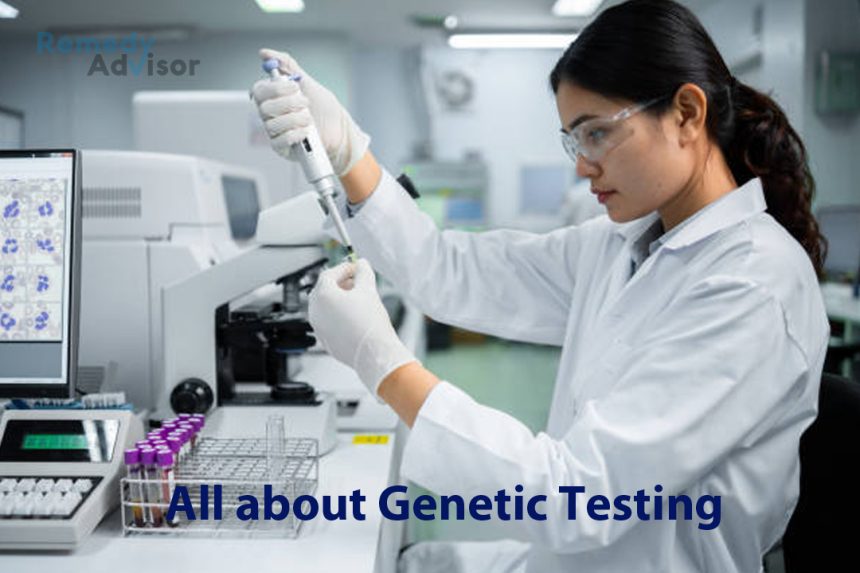Over the past 20 years, hundreds of diseases have been linked to mutations in certain genes. A growing number of these mutant genes can now be detected via a simple blood test.
How much influence does your genetic makeup have over your health? What can you do if a hereditary ailment runs in your family? Who should undergo genetic testing?
For the answers to these and other questions, we spoke with Yale genetic counselor Ellen Matloff…
• To what extent is illness determined by “bad” genes?
We shouldn’t really call these genes “bad.” We all have genetic mutations. Each of us is probably predisposed to at least one disease whether it’s cancer, heart disease, high cholesterol or a blood disorder.
Having a mutation that has been linked to a specific illness doesn’t guarantee that you’ll develop that illness. It just means you’re at high risk.
In many cases, you can minimize the risk by adopting a healthy lifestyle and by keeping an especially close watch on your health.
With some genetic defects, including those causing certain types of thyroid and colon cancer, risk of developing the disease in question can be close to 100%. That means anyone with the mutant gene who lives to age 85 is almost certain to develop the cancer unless the organ is removed no matter what other preventive measures are taken.
With other mutant genes, the risk is less certain. If you have one of the recently identified genes linked to breast cancer, for example, you have an 85% chance of getting breast cancer by age 85. The general population of women faces a 10% risk of breast cancer.
These mutations are also associated with a 50% to 60% lifetime risk of ovarian cancer (versus a 1% lifetime risk for the general population).
• For which diseases is genetic testing available?
Testing is now available for literally hundreds of diseases, including some hereditary forms of cancer of the breast and colon. That number is growing every year.
• Who should undergo genetic testing?
For mutations associated with Huntington disease, muscular dystrophy and other rare illnesses, genetic testing is appropriate if the individual has already begun to show symptoms of the illness or if he has a family history of the disease. The test results help the doctor confirm a suspected diagnosis.
Pre-symptomatic testing: Available for some forms of hereditary breast, ovarian, colon, thyroid and skin cancer is appropriate only if…
• One or more close family members
One or more close family members (parent, sibling, grandparent, aunt or uncle) have had the cancer in question.
- A close family member had the cancer at an early age.
For breast cancer, early is considered to be age 40 or younger. Or, if the family member had the cancer more than once in both breasts, for example. Consult your doctor.
• What’s involved in genetic testing?
Typically, a sample of blood or skin (cells scraped from the inside of the cheek) is required for testing.
The sample may be tested at the hospital or sent out to an independent lab. Results are available within one to three months. Be sure to find a hospital that offers genetic counseling services along with testing.
• What if I test positive?
For some diseases, there’s nothing you can do to alter your fate. Take Huntington’s disease. Even if you find out that you have the mutation linked to this fatal neurological disease, there’s no way to prevent the nerve degeneration or slow its progress.
In such cases, one benefit to screening is the elimination of uncertainty.
Someone who tests positive for the gene for Huntington’s might opt not to have children for fear of passing on the mutation to them or of being too ill to raise them.
Another person might choose to begin his family at a younger age, to use donor sperm or eggs or to do prenatal testing.
That person can now make meaningful plans for the future make out a will, settle finances, and even choose a nursing home. This may also be a time to consider spending more time with friends and family and to enjoy life to the fullest.
Many people find the reduced uncertainty to be positive even if the news is bad. With cancer-related mutations, the outlook is more positive.
Say you test positive for a mutation linked to breast or ovarian cancer. Your doctor may recommend that you have a mammogram or ultrasound scan more frequently than is ordinarily recommended. That way, you’ll be able to detect any tumor at its earliest possible stage.
If you have the gene for colon cancer, you might have colonoscopies more frequently.
A more aggressive approach would be to take out the organ before it develops disease.
If you have your thyroid removed and take thyroid supplements, for example, your risk of thyroid cancer is almost zero.
A woman with a family history of breast cancer might opt to have her breasts removed. This approach, known as “prophylactic mastectomy,” is an extreme step. But it can be a lifesaving decision.
Knowing you’re at risk for a certain ailment can motivate you to stick to a healthy lifestyle eating a low-fat, high-fiber diet, avoiding smoking, etc.
• How should I go about deciding whether or not to get tested?
Discuss testing with a genetic counselor, your doctor and your entire family. Consider what would happen if you were to test positive or negative. Take time to think this over.
Many individuals who initially clamor to be tested ultimately decide not to once they realize just what’s involved.
In most cases, we recommend waiting until at least age 18 before getting tested for adult onset disorders. Children should be tested only if there’s a family history of a treatable childhood disease.







